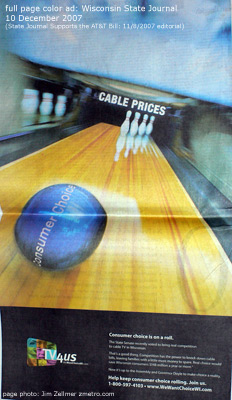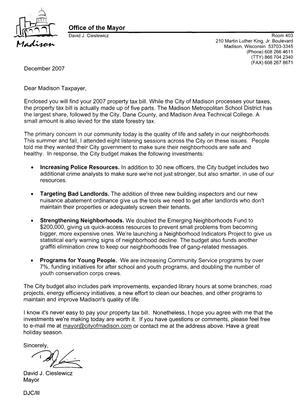I sent this email to Representative Tammy Baldwin along with Senators Russ Feingold and Herb Kohl regarding their support for the pork laden farm bill:
Dear ___________:
I am writing to express my disappointment in your vote for the pork laden farm bill.
Similar to the support given for a 5% large corporation offshore tax rate a few years ago, this legislation benefits only the rich on the backs of middle class taxpayers.
I am surprised and disappointed.
Jim Zellmer
Much more on the farm bill here.
Wisconsin Democrat Ron Kind, to his credit, voted against the farm bill:
“Today Congress squandered the best opportunity in decades to reform our wasteful, outdated subsidy system.
“We need a Farm Bill, but we need the right kind of farm bill. Let me be clear: This bill is not a reform bill. It is not even the illusion of reform. Continuing to send unlimited subsidies to millionaires is not reform. Creating a new disaster entitlement program is not reform. And setting ourselves up for billions in unaccounted spending is not reform. The president was right to veto it.
“As families kick off their summer vacations this weekend facing the highest gas prices ever, skyrocketing food costs, stagnant paychecks and a lagging economy, I urge them to ask their member of Congress how they could justify sending unlimited taxpayer subsidies to agribusinesses and wealthy landowners making up to $2.5 million a year in profit.
Related:
- John McCain on the Farm Bill
- Barack Obama
Wisconsin Radio Network notes that Green Bay Democrat Steve Kagen and Wausau Democrat David Obey also voted for the farm bill.
2007 Farm Subsidy Database by Congressional District.



